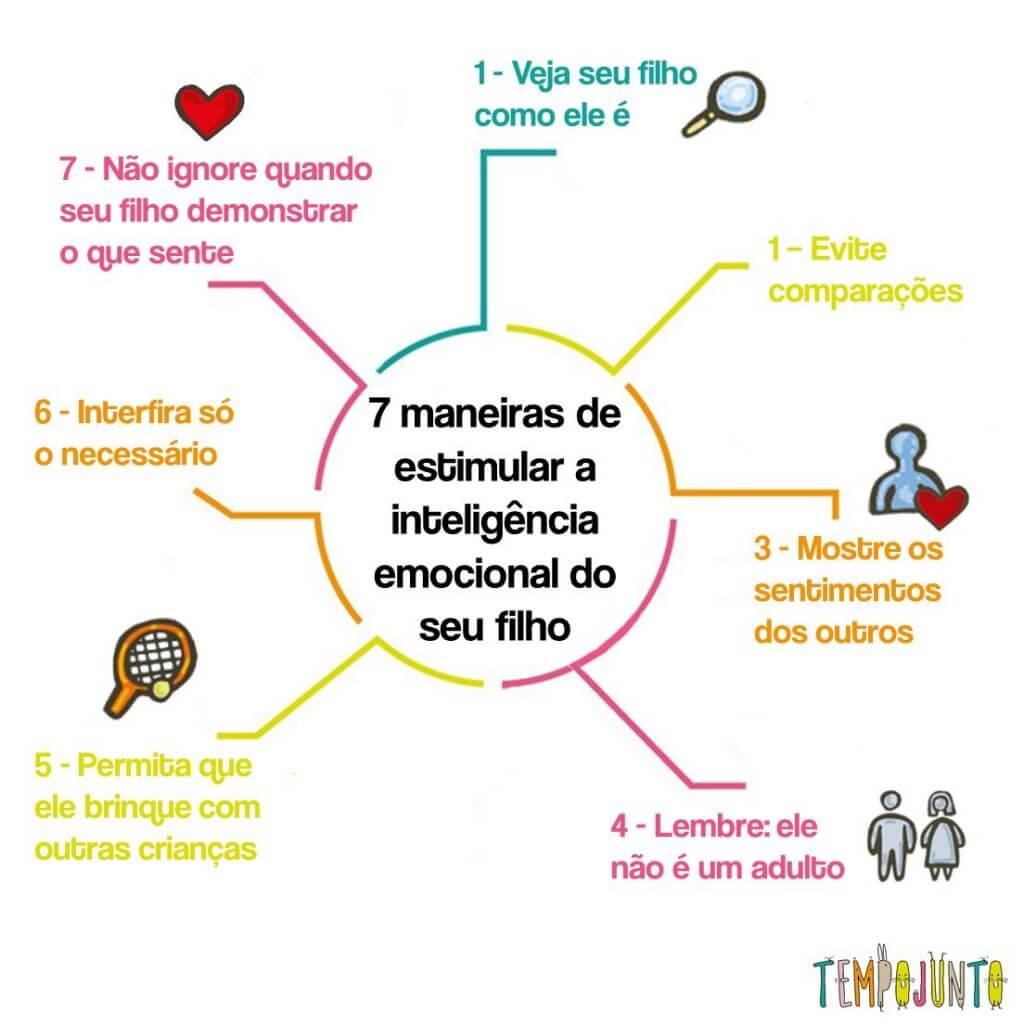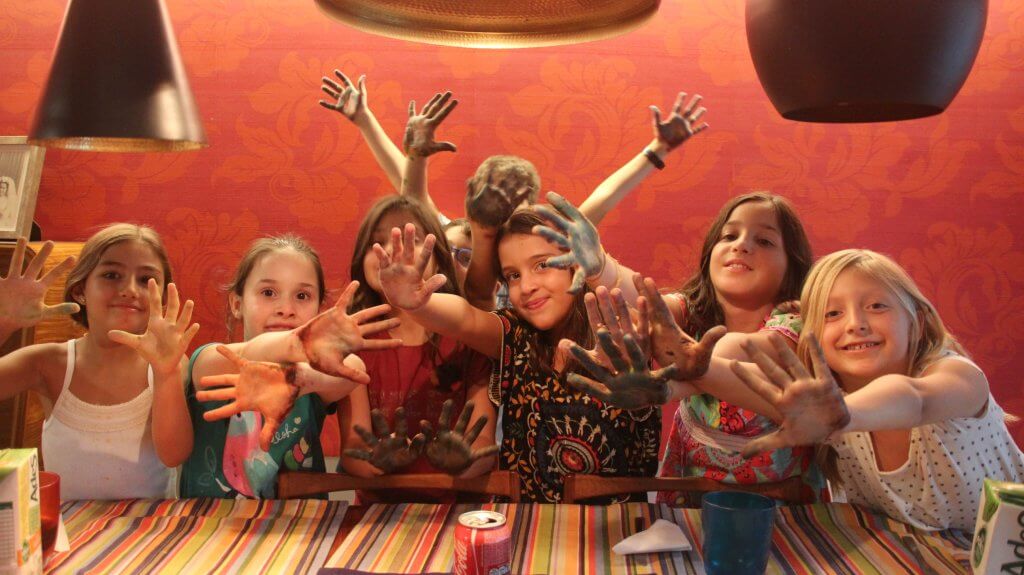
Yea! I started right away this time with our video on the Tempojunto channel on Youtube, because the theme of emotional intelligence it’s long and you may want to go straight to the video.
However, the 7 simple ways to stimulate your child’s emotional intelligence are here too, to make it easier.

You must have at least heard about Emotional intelligence. It gained strength when we talk about skills for adulthood. It goes hand in hand with cognitive intelligence, the one most related to acquiring information, knowledge and reasoning.
Emotional intelligence is the encounter of the self with the other
In the same way that reasoning needs to be stimulated, and knowledge needs to be constantly acquired, emotional intelligence is not born ready. But it needs stimuli to mature.
Emotional intelligence involves knowing yourself, knowing how to reduce your own levels of stress and anxiety. In addition to being able to talk to the other person empathetically, even when you need to make a criticism.
Daniel Goleman, one of the contemporary researchers who studies and writes the most on the subject, states that:
Emotional intelligence promotes decreased levels of anxiety and stress; greater empathy for others; more emotional balance; greater clarity in life goals and ability to make decisions; better time management; increased productivity and commitment to goals; and greater self-esteem and self-confidence.
Comparisons and living with the different
I will list here the shapes that you have in your day to day and are simple. Often, all you need to do is change your gaze on your child. However, they will help in the development of this skill.
1 – See your child with what he is
It is normal for us to idealize our son when he is not yet born. We put in our imagination the way, the expectations and the dreams about that child.
However, when she is born, we need to set aside the ideal and look at our son to understand who he is; what he likes. Only then will we start to live with our real son and not with an imaginary son.
2 – Avoid comparisons with other children
This is a habit that is usually easier to talk about than to include in our daily lives. In a society formed by competition, we are constantly bombarded with comparisons. And, even thoughtlessly, we pass this on to our children.
Then consciously try to avoid comparing one child to another. Whether with his brother, cousin or close friend, with characters from soap operas, or with his neighbor.
To stimulate emotional intelligence, keep the will to interfere guarded
What are the other ways you can take to raise children with emotional intelligence?
3 – Look for opportunities to discuss other people’s feelings
When the child understands that the other has feelings and emotions equal to theirs, it becomes simpler for them to understand that being empathetic and sympathetic is good.
4 – Avoid ignoring or ignoring your child’s expressions of feelings
As for us adults, it is difficult for the child to express his feelings and thoughts. If the moment she does this, even as a little girl, she is ridiculed, she will most likely stop expressing herself.
So don’t make fun of or criticize someone in front of you by courageously expressing your feelings.

5 – Allow him to play and socialize with several children
The child’s emotional intelligence is also related to the ability to socialize. The more diverse the people with whom your child lives, the more he will have the opportunity to develop his EI.
6 – Only interfere if really necessary
Temptation of temptations! As we like to give an opinion, to throb and to interfere in everything that our son does. Be assembling the puzzle, negotiating a toy at the Toy Fair, choosing the best profession.
Well, if we allow children to resolve their issues on their own, they will have an incredible laboratory to learn to understand and control their anxiety, anguish, expectations.
All of this trains emotional intelligence. What if it doesn’t work? Well, in addition to being in the field of play, your child will have you close to help.
7 – You were already a child. He was never an adult
Emotional intelligence is a process that also depends on the maturation of the brain. Try to remember when you were a child and see the world with your child’s eyes.

